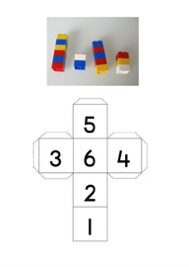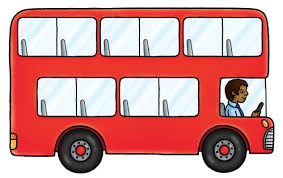
Mount Carmel at Home - 15/05/2020
Posted 2020-05-15 07:46:30Welcome to Mount Carmel at Home. These sessions will enable parents to carry out fun and educational home learning activities with their children. We recommend establishing a routine and setting aside a time in day for home learning. It is preferable to do these activities in the morning when children are more alert than towards the end of the day when they can be tired and less cooperative.
Share your child's learning with us by uploading photos and videos to their Learning Journey on Famly, by uploading on Instagram and adding the hashtag #MountCarmelatHome or posting on our Facebook page. Your child's teachers will love to see what you have been up to!
Click here to download today's activity sheet and resources.
The sound of the week is "L" - https://youtu.be/U2HYM9VXz9k?t=293
Theme: London
Today’s activities for preschool children
Activity 1 - Lego Towers Game

What you’ll need |
|
Method | Sort out some bricks (for ease of building it is good to have ones that are the same size, but this is not essential). This game can be played with 2+ people; I would suggest a minimum of 20 bricks for 2-3 players and more for each extra person. Place the bricks in the centre of the playing area and explain that you will be playing a game where you have to build the tallest tower. Each person takes it in turns to roll the dice and take the amount of bricks that corresponds to thee numeral rolled. Play continues until all the bricks have run out, if there are not enough bricks left for you to take the total rolled, you may take whatever is left. Finally, measure the towers and see who has the tallest one. Count how many bricks their tower is made up of and declare that person the winner! |
What did we learn? | Mathematics: Numbers – Knows that numbers identify how many are in a set, shows an interest in number problems, selects the correct numeral to represent 1 to 5, then 1 to 10 objects, counts an irregular arrangement of up to 10 items. Personal, Social andn emotional development: Managing feelings and behaviour – Can take turns and share resources. |
Activity 2 - Junk Modelling - London Underground

What you’ll need | Glue Paint Get searching through the recycling for boxes, toilet rolls… Photos of trains and stations |
Method | At nursery we often repeat activities to reaffirm or develop any skills learnt. As we junk modelled the St Albans clock tower last week, let’s get the materials back out and get creative again! Have a look together at pictures of the London Underground. Has your child ever been on the tube? Do they remember? Do they know it's all in tunnels under the city? Using junk model materials, make your very own tube station and train! Maybe you could use toilet or kitchen roll tubes for the tunnel and wine corks for the carriages? Your imagination is the limit! |
What did we learn? | Exploring using media and materials: Constructs with a purpose in mind, using a variety of resources. Selects tools and techniques needed to shape, assemble and join materials they are using. Understanding the world |
Activity 3 - London Bus Passengers Game

What you’ll need |
|
Method | Fill the bus with passengers! Roll the dice and place that amount of ‘passengers’ on the bus, in the window seats. The first player to fill their bus is the winner. To make this trickier, explain to your child that if they only have two seats left, they must roll a ‘two’ or less on the dice. Any number they roll, that is greater than the number of remaining empty seats, means they must wait until their next turn to roll again. Another extension of this is to set a timer of 30 seconds to race against time! |
What did we learn? | Recognising numbers on a dice is a mathematical skill that your child will use throughout life. Maths: Shows an interest in number problems Begins to identify own mathematical problems based on own interests and fascinations |
Share
Categories
Recent posts
-
Mount Carmel at Home - 22/05/2020
Posted 18th May, 2020 -
Mount Carmel at Home - 21/05/2020
Posted 18th May, 2020 -
Mount Carmel at Home - 20/05/2020
Posted 18th May, 2020 -
Mount Carmel at Home - 19/05/2020
Posted 18th May, 2020 -
Mount Carmel at Home - 18/05/2020
Posted 17th May, 2020 -
Mount Carmel at Home - 15/05/2020
Posted 15th May, 2020
